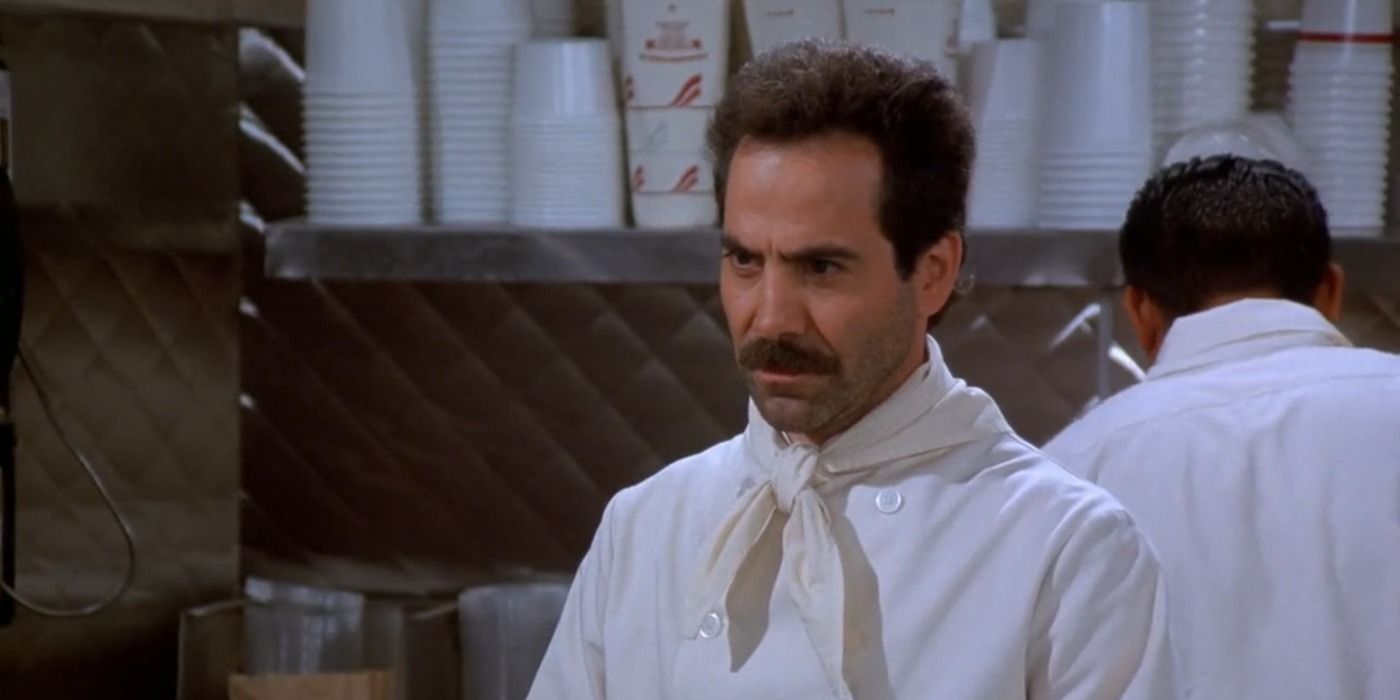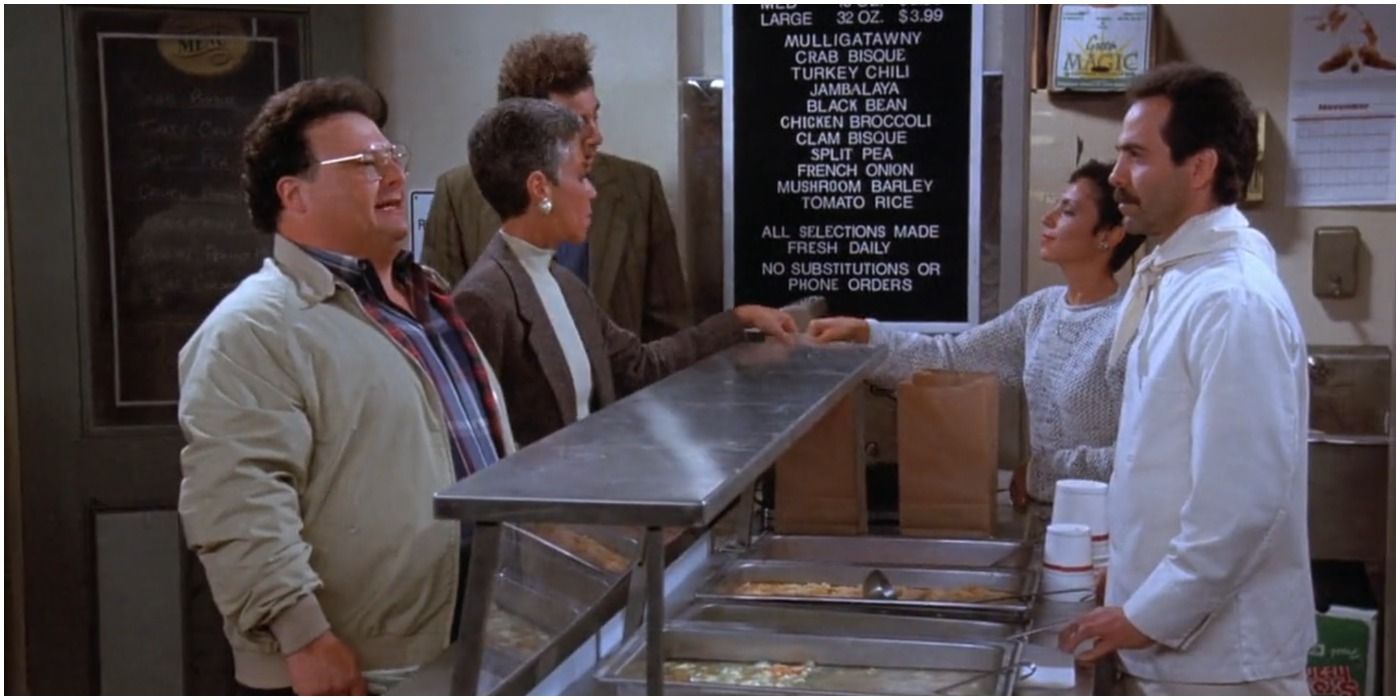Here's the true story behind the Soup Nazi on Seinfeld. Appearing in the aptly-titled season 7 episode "The Soup Nazi," the character quickly became one of the show's most iconic guest stars. He's known for running his soup kitchen with very strict rules and regulations. Even the slightest misstep can result in a customer not getting their food or being banned from the restaurant. Despite the harsh conditions, the people in Seinfeld's New York continue to go to the Soup Nazi, since the soup is of very high quality.
While Seinfeld cut its teeth by exploring the grounded minutiae of everyday life, the writing team explored their creative sides a bit in later seasons with more extreme concepts (such as "The Bizarro Jerry"). At first glance, "The Soup Nazi" seems like one of those ideas, as on-paper it can read as an over-the-top pitch for an episode. However, "The Soup Nazi" comes from a very real place, and is based on an actual restaurant in New York.
As detailed in one of the Inside Looks on the Seinfeld DVD release, "The Soup Nazi" originates from writer Spike Feresten's experience at a New York soup kitchen. The real-life place was owned by a man named Al Yeganeh, who ran an operation very similar to the one seen on Seinfeld. New Yorkers familiar with Yeganeh remarked how accurate the episode was. Even the actor who played the Soup Nazi, Larry Thomas, was cast because of his physical resemblance to Yeganeh. To many watching the episode when it first aired, the Soup Nazi seemed like an outlandish character, but New Yorkers knew it was a spot-on parody of an actual person.
The crew didn't expect "The Soup Nazi" to become a landmark episode of Seinfeld's 9-season run, but it was an instant success. Local news teams even started to cover Yeganeh's restaurant, as they were able to spot the similarities. This increased publicity didn't thrill Yeganeh, who became very angry about his portrayal. In the same Inside Look, Feresten shared an anecdote about Jerry Seinfeld visiting Yeganeh's place for lunch while working on Seinfeld season 8. Yeganeh became very angry upon seeing Seinfeld, screaming about how the episode had made a negative impact on his life. When Seinfeld sarcastically offered an insincere apology, Yeganeh banned him from the soup kitchen.
It isn't entirely surprising Yeganeh had that kind of response to the show. His portrayal on "The Soup Nazi" painted him in an overly vicious light (for humorous effect) and that couldn't have been easy for him to see. At the end of the day, he was just trying to make an honest living running a soup kitchen, and in the aftermath of the episode, he immediately became known as the real Soup Nazi. There's a chance the episode might have even scared some people away from trying Yeganeh's soup, which would have hurt business. There's no denying it made for a very funny Seinfeld episode, but Yeganeh probably wishes Feresten kept the idea to himself.
Seinfeld is now streaming on Netflix.


